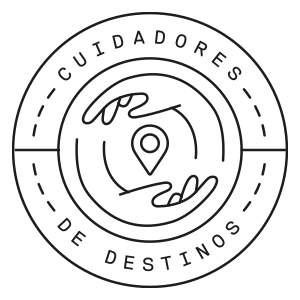What if Alexander Von Humboldt were the director of a DMO?
Andrea Wulf, the author of "The Invention of Nature," an acclaimed biography of Alexander Von Humboldt, writes about Humboldt's vision:
Everything, from the humblest moss or insect to elephants or gigantic oaks, had its function, and together they formed the whole. Humanity was just a small part.
Humboldt is said to be the last person to know everything. Since then, science and specialization have made it impossible for a single person to possess all of humanity's knowledge. Humboldt, a tireless traveler, interweaves disciplines to understand the world around him: Ecology, geology, climatology, anthropology, mathematics, history, physics, and art were his main tools to comprehend the vibrant world awaiting discovery.
This broad view of phenomena is masterfully captured in the iconic work Naturgemalde, where Humboldt skillfully integrates information from different areas, concluding that "in this great chain of causes and effects, no fact can be studied in isolation”.
Naturgemalde by Alexander Von Humboldt.
Specialization, which prevailed in Western culture by isolating phenomena for in-depth study, accelerated the industrial revolution and brought great advances for humanity. However, it has become evident that it also brought problems—what economists call "externalities."
In the early 1970s, scientists from various disciplines began to warn about the importance of setting limits to growth. Concerned about the prevailing ideal of "unlimited pro-growth" in the world economy on a finite planet, they raised an alarm about the need for a perspective that considers all the impacts of such growth. The urgent need for a systemic view.
Almost 200 years after Humboldt's birth, scientists were calling to look at the world again through the eyes of the renowned naturalist. Since then, systems theory concepts have been used to understand and envision solutions to complex problems. "Sustainable" is the most commonly used term to date, but concepts like resilience, robustness, and plasticity gain strength when dealing with increasingly complex issues.
DMO’s and a systematic perspective.
DMOs (Destination Management Organizations), caught in specialization and the partial study of problems, saw a shift in focus to deal with and provide solutions to problems they had not addressed in their work model until then. From a management that focused on the visitor, their spending, and average stay—a vision that brought problems like over-tourism—to a management that incorporates all phenomena and studies them in their context, as part of a larger system.
Pioneering was the campaign by Wonderful Copenhagen (DMO in Denmark) in 2016, declaring "The end of tourism as we know it." This campaign, aiming to avoid problems faced by other European cities like Barcelona, Rome, and Venice, broadened its perspective in studies, strongly incorporating the opinions of residents and concerns for their well-being.
This holistic view, incorporating externalities and making them part of the system, gains strength as the negative impacts of tourism become more visible. With the pandemic and the mandatory pause in tourism activities, more and more DMOs are changing their management, incorporating a systemic view that considers not only the relationships and elements related to visitors but everyone who makes up the tourist destination, with emphasis on residents, nature, and their relationships.
So, what measures would Alexander Von Humboldt take if he were the director of a DMO?
Systemic Vision: A tourist destination would be defined as a complex socio-ecological system, where the parts are understood in their relationship to the whole, and no phenomenon is studied in isolation.
Measure Costs and Benefits: Just as he did on Mount Chimborazo, his backpack would be loaded with measuring instruments. Everything is measured. The discourse of benefits would go hand in hand with the costs associated with tourism.
Diversity is Key: He would understand that dependence on a few elements is dangerous for the system's survival. The territory cannot be "tourism-dependent"; there must be a diversity of economic activities to ensure the system's subsistence against external disturbances.
Value Feedback: He would pay attention to all feedback, not just the good news but, with greater emphasis, those limiting the system's continuity. He would constantly listen to residents and nature in destinations.
Value Weaker Relationships: Humboldt understands that the system's survival depends on the relationships between its elements. Strengthening relationships with elements of the system whose interactions are weak would be a priority in his meeting agenda. He understands that there lies the key to resilience and sustainability.
Borders are Valuable: He knows that the system's edges are extremely rich in diversity, where there is interaction with other systems. It would be normal to see meetings between tourism organizations and other economic activities, learning mutually from solutions to complex problems.
Sense the Destination: Humboldt wouldn't sit at his desk all day. Just as he didn't wait at his home in Berlin for the news to come to him. It would be him, constantly touring the field, perceiving emotions and subtleties that only a site visit can provide: "We need to use our emotions and imagination to understand nature."
This intellectual game rescues a forgotten vision in destination management. Except for a few global exceptions, the systemic view has been excluded from the conversation and methodology for making decisions and solving complex problems. Perhaps, even if only a game, reviving the methodology of a character with infinite curiosity might be exactly what an activity needs that has been affected by its own success by ignoring all the elements interacting in its development.
Alexander Von Humboldt would see tourist destinations as systems, as a network of interconnections, interrelated and interdependent on each other, like a living organism, whose totality is more than the sum of its parts, and its phenomena are only understood in relation to the context, not in isolation. He would be part of a management where both benefits and costs are constantly measured, and the voices not only of visitors but also of residents and nature are of immeasurable value, as they are the foundation of tourism, and their well-being will define the present and future viability of the activity.


